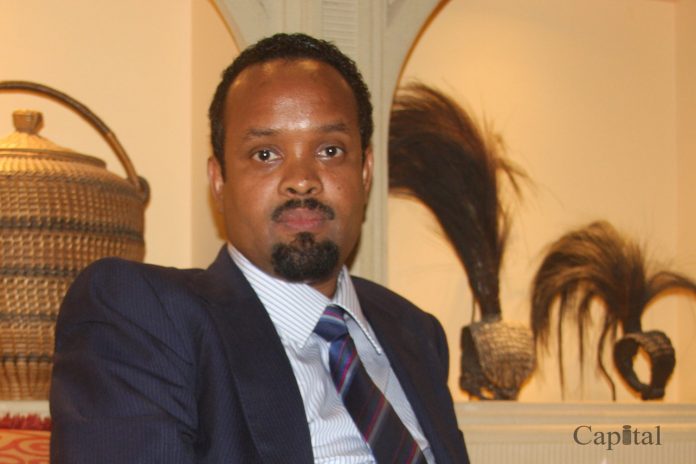Ethiopia Eyes Obtaining Partial Share Of Berbera port ‘’ Ethiopian Minister of Transport
Addis Ababa 01. June 2017 (SDN/QJ):- Ethiopia is looking to be part of the tripartite investment and shareholders in Berbera Port of Somaliland that was previously managed by the Dubai based DP World and the Somaliland government.
Recently Somaliland media outlets quoted Hussein Ige Dayr, spokesperson for the president of Somaliland, stating that Ethiopia will receive a 19 percent share of the Berbera Port which will make the port a tripartite ownership for three decades.
A year ago DP World and the government of Somaliland agreed to a 30-year concession to manage the port of Berbera.
The Dubai based company agreed in 2000, with Djibouti to develop the latter’s ports and manage them for 20 years. Now they plan to undertake a modern port expansion at Berbera at a cost of USD 442 million.
Ahmed Shide, Minister of Transport, told Capital that Ethiopia wants port expansion and development in every corner of the region. “The port at Berbera will be an alternative for the big population and fast growing country like Ethiopia. The issue has been notified by Ethiopia to its regional partners,” he said.
“In the case of Berbera we are not just considering using the port we are also looking at the tripartite investment possibilities,” he added.
Reliable sources told Capital that Abdisa Yadeta, State Minister of Transport, was in Berbera for an emergency meeting and was attending the launching ceremony of the expansion project.
Sources said that the state minister has met with top officials of Somaliland, President Ahmed Mohammed Mohamud Silanyo and DP World leaders.
According to the deal between DP World and the government of Somaliland a year ago, the Dubai multinational company takes a 65 percent share and the balance goes to the self declared state.
The recent report from Somaliland stated that Ethiopia, which will be the major customer of the port, will secure a 19 percent share.
The media outlets that quoted the country’s spokesperson stated that the Somaliland government will continue to hold a 35 percent share, while DP World has transferred 19 percent to Ethiopia. But DP World will continue to be the major share holder with a 46 percent share.
“It is too early to disclose details. We are under negotiation,” Ahmed said.
Ethiopia did not express its interest in engaging in port handling or a share holder position. For instance in 2013 the Chinese port administration giant China Merchant Group invested in the Port of Djibouti and secured a 23.5 percent share at the cost of USD 185 million, while Ethiopia, which is the main user of the ports in Djibouti was not engaged in these kind of deals.
Since the Ethio-Eritrea war embarked in May 1998 the country has been using the Port of Djibouti, which was a very small facility at the time. Experts said that because of the weak economy at the time, Djibouti was looking for Ethiopia’s involvement to expand the port facilities to accommodate the growing demand of Ethiopian cargo.
However the government did not invest in ports but instead preferred to expand and modernize the logistics sector by adding modern vessels and expanding inland infrastructure like the railway.
Experts said that even if the investment is massive and costs a lot of money there is still a benefit for Ethiopia, which is the most populated country without a seaport.
The distance from Berbera to central Ethiopia is not significantly more than the distance between Djibouti and central Ethiopia, but the inland infrastructure needs more improvement mainly in the territory of Somaliland.
However the modern electric railway line connecting Djibouti with Sebeta will make the transportation of cargo faster and easier, making the ports in Djibouti more competitive than other ports for transporting cargo to the north east and central part of Ethiopia. Ports like Berbera will be useful for cargo transportation for closer areas in east and south east Ethiopia, according to experts.
Currently, Ethiopia is using Berbera Port for emergency food aid import.
Source: http://capitalethiopia.com/

